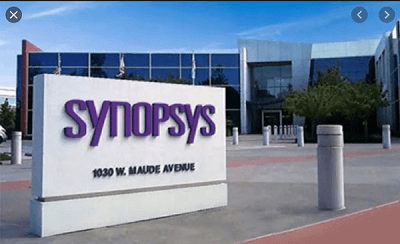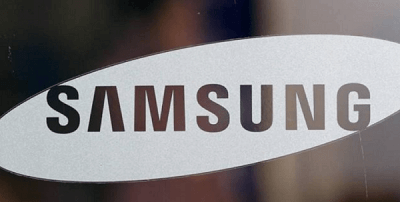Walsin Technology MLCC Rose up to 40%!
News summary
1. Walsin Technology MLCC price increases by 30%-40%
2. ByteDance responds to self-developed chips
3. AMD releases 7nm server chip "Milan"
4. Synopsys and Akrostar reached a strategic partnership in the field of IP products
5. In 2021, the size of the photoresist market will grow by 11% to US$1.9 billion
6. Advanced Micro Company released the Primo Twin-Star dual-reactor inductively coupled plasma etching equipment
7. Chinese manufacturers' OLED panel market share will exceed 13% in 2020
8. Received a 5G network order from a Canadian telecom operator, and Samsung Electronics was selected as the exclusive supplier
1. Walsin Technology MLCC price increases by 30%-40%
The Economic Daily reported on March 16 that at the beginning of this month, Yageo issued a price increase notice to the client. Resistance and MLCC are expected to increase by 10-20%. The new price will take effect in April, and contract customers are also included in the increase range.
An agent revealed that following Yageo’s decision to increase the MLCC price by 10%-20% since April, the “passive brother” Walsin Technology is not to be outdone, and has issued a notice to increase the MLCC quotation by 30%-40% in the near future. The increase was twice as high as that of Yageo, highlighting the passive tight market conditions.
It is worth noting that in the past, Walsin Technology adjusted the MLCC quotation time by about a quarter later than Yageo. However, this time, the price increase was initiated simultaneously with Yageo, and the increase was much higher than that of Yageo, which caused heated discussions in the market.
In addition to resistors, Walsin Technology's low-temperature co-fired ceramic components (LTCC) have risen three times in a row. After the price increase of MLCC this time, the quotations of Walsin Technology's three major product lines have almost fully increased.

2. ByteDance responds to self-developed chips: forming a team to explore the field of AI chips
Caijing Technology News on March 16th, there are media reports that ByteDance is developing its own cloud Al chip and Arm server chip. Judging from the previous news in the market, ByteDance is actively forming an Al chip team, and there are already many chip-related positions on major recruitment platforms. Caijing Technology asked the relevant person in charge of ByteDance about this news. The other party said that it is setting up a relevant team to do some exploration in the field of Al chips.
According to the media, ByteDance chose to layout the chip field from cloud AI chips and Arm server chips, which is also the mainstream way for Internet companies to enter the chip market. From the perspective of the international market, since Google released TPU in 2016, it has become a trend for international Internet giants to enter the chip field. Later, China's domestic BAT Internet giants have expanded their business, and Internet companies have become unstoppable in making chips.

3. AMD releases 7nm server chip "Milan"
Sina Technology News, AMD released a server chip named "Milan" (Milan) on March 15th local time. "Milan" adopts 7nm process technology, and the architecture is upgraded to Zen3. The "Milan" family 7003 series has 19 models, and its performance is significantly improved compared with the second-generation EPYC "Rome". AMD claims this is the world's fastest server processor. It is reported that AMD completed the design of the chip and commissioned TSMC to use a 7-nanometer chip manufacturing process to achieve mass production.
Dan McNamara, senior vice president and general manager of AMD’s server business unit, said at a press conference, “We are now developing third-generation chips, and we believe this is a very valuable product, leading in the field of data center chips. Status. If we keep this pace of execution unchanged, we can continue to remain competitive."

4. Synopsys and Akrostar-Tech reached a strategic partnership in the field of IP products
Synopsys and Akrostar-Tech jointly announced on March 16 that the two parties have reached strategic cooperation for several years. Synopsys authorized Akrostar-Tech to use Synopsys’ 12-28 nanometer process technology to adapt to domestic chip manufacturing. Process DesignWareR USB, DDR, MIPI, HDMI, and PCI Express series of IP cores.
After obtaining authorization from Synopsys, Akrostar-Tech will use these interface IP cores verified by Synopsys' silicon to provide targeted customization and optimization of IP for the processes of domestic chip manufacturing companies to enhance the automation level of chip design. And to improve the verification level of customer systems, to provide acceleration for the integration and deployment of customer products.

5. In 2021, the size of the photoresist market will grow by 11% to US$1.9 billion
The Science and Technology Innovation Board Daily reported on March 16 that according to the forecast of TECHNET, an electronic materials market research and consulting service company, the scale of the photoresist market required for semiconductor manufacturing in 2021 will increase by 11% year-on-year to US$1.9 billion.
From the perspective of resist types, the photoresist market in 2020 and 2021, the photoresist market for KrF and immersion ArF is relatively high. For EUV, the application range is expanding from logic chips to DRAM. The EUV photoresist market in 2021 will exceed 20 million U.S. dollars, and will continue to grow thereafter, and is expected to exceed 200 million U.S. dollars by 2025.

6. Advanced Micro Company released the Primo Twin-Star dual-reactor inductively coupled plasma etching equipment
On March 16th, Advanced Micro Company stated in its official WeChat public account that the company officially released a new generation of inductively coupled plasma (ICP) etching equipment Primo Twin-Star during SEMICON China 2021, which is used in the front and back of IC devices. Etching application of conductive/dielectric film in a subsequent process.
Advanced Micro's Primo Twin-StarR etching equipment has received orders from leading domestic customers. At present, the first Primo Twin-StarR equipment has been delivered to customers and put into production with a stable yield. The company is also conducting multiple evaluations for different etching applications. Primo Twin-StarR equipment optimizes the inductively coupled plasma (ICP) etching equipment product line of China Micro Company.

7. Chinese manufacturers' OLED panel market share will exceed 13% in 2020
According to a report from BusinessKorea on March 15, the market share of Chinese manufacturers' OLED panels exceeded 13% in 2020, and the growth rate shocked the Korean OLED industry.
According to a report released by the Korea Display Industry Association on March 14, benefiting from the subsidy policy of the Chinese government, Chinese panel makers will account for 13.2% of the global smartphone AMOLED panel market in 2020, the first breakthrough 10% mark. In 2016, the market share of China's panel makers was only 1.1%, but in 2019 it jumped to 9.8%, and they are catching up quickly.
8. Received a 5G network order from a Canadian telecom operator, and Samsung Electronics was selected as the exclusive supplier
According to a report from Yonhap News Agency on March 16, Canadian telecom operator SaskTel has selected Samsung Electronics as its exclusive supplier of 5G network equipment and solutions. According to the agreement with SaskTel, Samsung will provide the Canadian company with 4G/5G radio frequency components, multiple-input multiple-output (MIMO) radio frequency technology, software, and maintenance services.
Samsung Electronics said that this is the company's first 5G network virtualization core equipment that can handle 4G/5G data communications to an overseas company. Founded in 1908, SaskTel has invested more than US$3 billion in Saskatchewan, Canada since 2010. It is reported that Samsung and SaskTel plan to launch 5G non-standalone services in 2022 before providing 5G independent networking.























